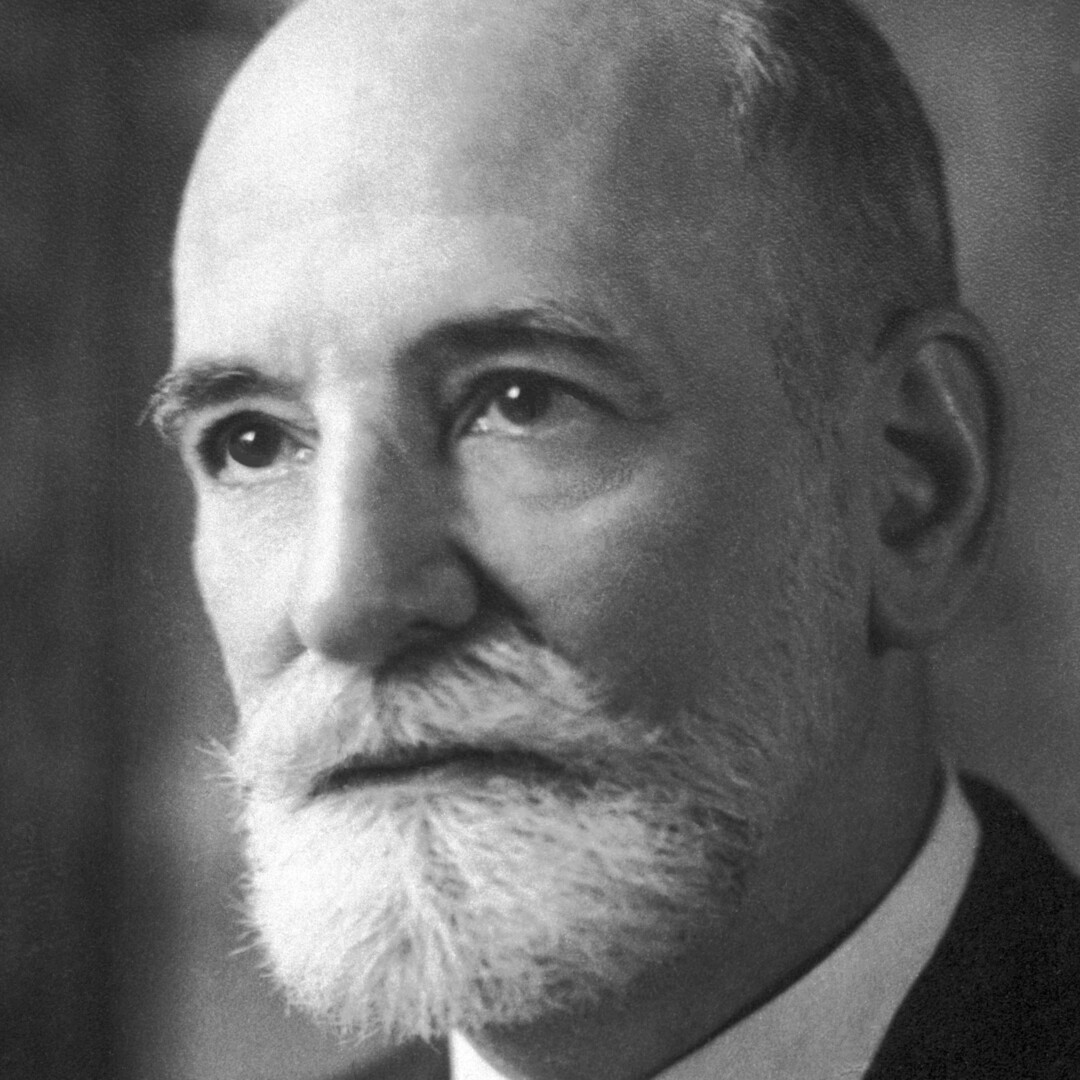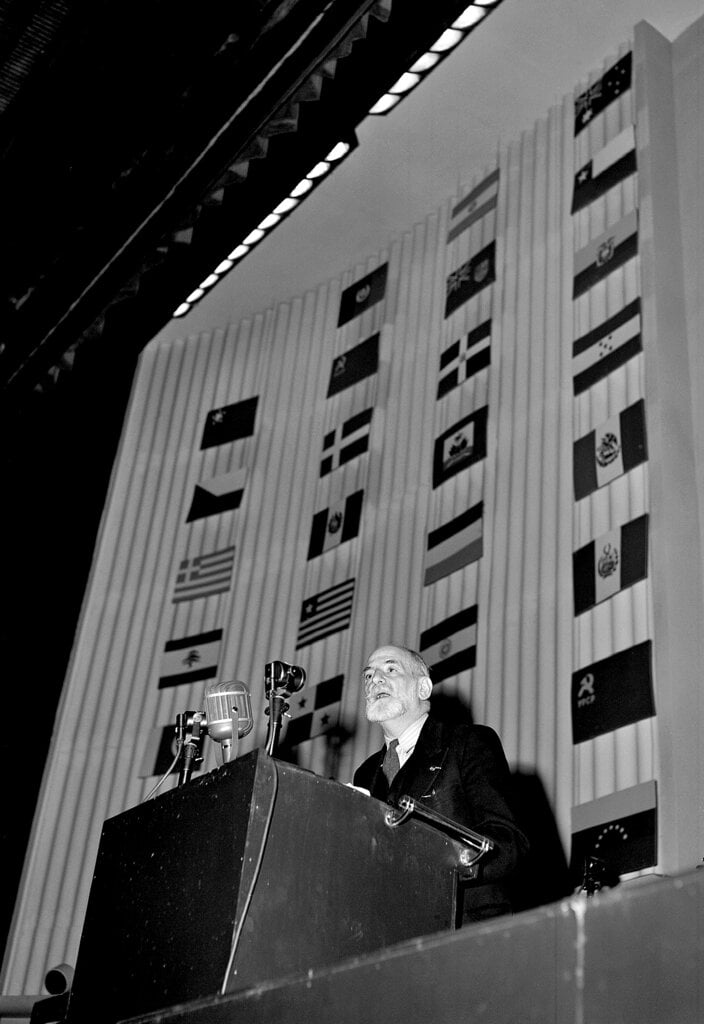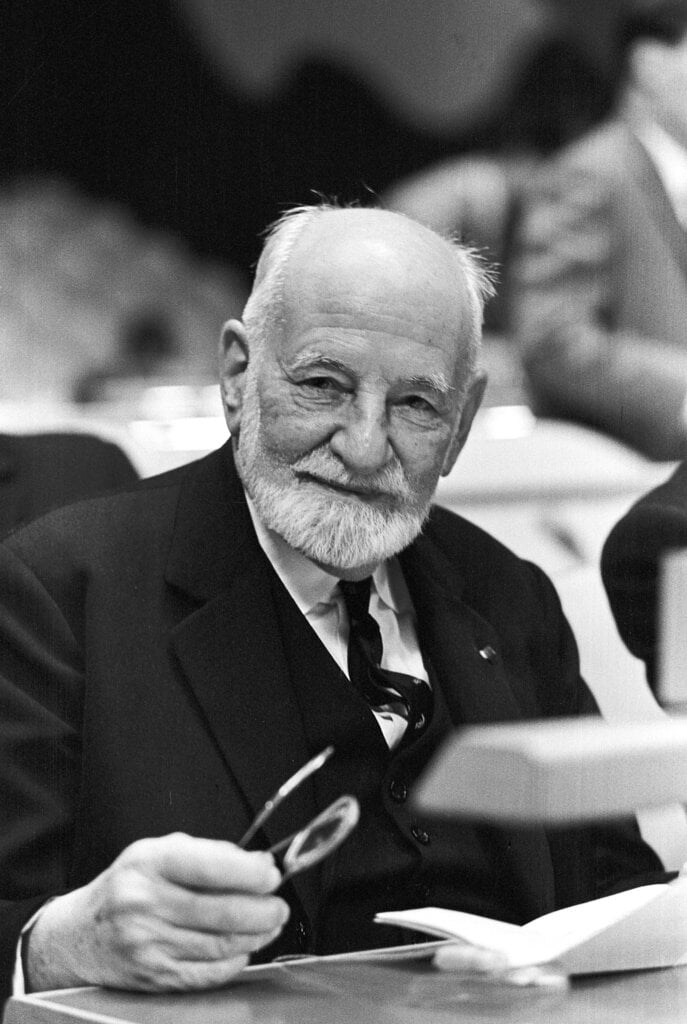René Cassin
Speed read
René Cassin was awarded the Nobel Peace Prize for his contribution to the creation of the Universal Declaration of Human Rights.

Full name: René Samuel Cassin
Born: 5 October 1887, Bayonne, France
Died: 20 February 1976, Paris, France
Date awarded: 9 October 1968
The father of the universal declaration of human rights
As a young soldier, jurist René Cassin was seriously wounded in WWI. The experience left a life-long impression. During the inter-war years, he was the French delegate to the League of Nations, where he advocated disarmament. In the 1920s, he took active part in the attempt to reconcile long-standing enemies. Cassin believed that war veterans were particularly qualified for such peace efforts, and he founded the International Conference of Associations of Disabled War Veterans. But he watched his work crumble as Hitler rose to power in Germany After WWII, the UN became René Cassin’s arena. He was the mind and driving force behind the UN commission that drafted the Universal Declaration of Human Rights in 1948. In 1968, the 20th anniversary of the ratification of the declaration, he received the Nobel Peace Prize in recognition of his efforts.
"In order to create peace on a firm foundation, we must give voice to our views clearly and unequivocally if we are to avoid becoming guinea pigs for those who are gearing up for war."
René Cassin, Speech to French war veterans, 1936.
| Human rights Rights that apply to all persons regardless of gender, race, ethnicity, religious affiliation or nationality. The most important are the rights enshrined in the UN Declaration of Human Rights, adopted in 1948. |
Father of the Wards of the Nation
After WWI, René Cassin founded the French Federation of Disabled War Veterans. He himself had sustained serious injury in 1916, suffering from chronic pain for the rest of his life. He was also concerned with the plight of widows and orphans. They, too, were victims of war. Cassin actively promoted the introduction of legislation to protect France’s 800,000 war orphans. These efforts succeeded in 1922, when orphans were granted legal status as wards of the nation. A grateful France dubbed Cassin “Father of the Wards of the Nation.”

The first UN commission on human rights
After WWII, the UN became Cassin’s workplace. He participated in drawing up the UN Charter and became involved in the struggle for human rights, serving as a member of the first UN Commission on Human Rights, established in 1946. Eleanor Roosevelt, widow of US President Franklin D. Roosevelt, headed the commission, while Cassin served as the vice-chair. His outstanding legal expertise enabled him to play a major role in the drafting of the declaration. Cassin focused on the importance of universality, as a universal declaration would apply to all people on earth, regardless of the regimes under which they lived.
"The other salient characteristic of the Declaration is its universality: it applies to all human beings without any discrimination whatever; it also applies to all territories, whatever their economic or political regime."
René Cassin, Nobel Prize lecture, 11 December 1968.

Universal declaration of human rights
Article 1. All human beings are born free and equal in dignity and rights. They are endowed with reason and conscience and should act towards one another in a spirit of brotherhood.
Article 2. Everyone is entitled to all the rights and freedoms set forth in this Declaration, without distinction of any kind, such as race, colour, sex, language, religion, political or other opinion, national or social origin, property, birth or status. (…)
Article 5. No one shall be subjected to torture or to cruel, inhumane or degrading treatment or punishment.
Learn more
A jurist, humanitarian, and internationalist, René Samuel Cassin is one of the world’s foremost proponents of the legal as well as the moral recognition of the rights of man ...
Disclaimer: Every effort has been made by the publisher to credit organisations and individuals with regard to the supply of photographs. Please notify the publishers regarding corrections.
Nobel Prizes and laureates
Six prizes were awarded for achievements that have conferred the greatest benefit to humankind. The 14 laureates' work and discoveries range from quantum tunnelling to promoting democratic rights.
See them all presented here.
